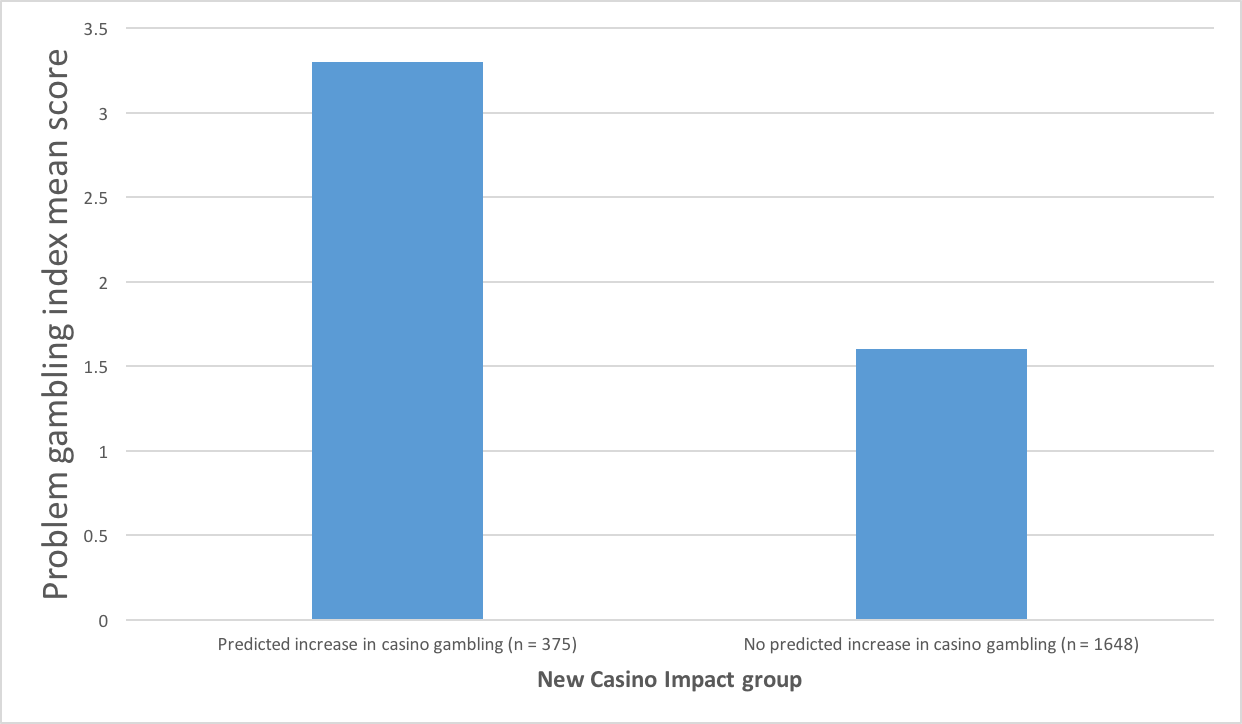WAGER, Vol. 22(11) – Older adults and new casinos: Do gambling expectations relate to problems?
The opening of a new casino can have a significant impact on the local community’s economy and rate of gambling participation. Because of the potential for community-level changes, it is also important to consider possible individual-level changes, especially among at-risk groups such as older adults. This week, The WAGER reviews a study by Anthony Piscitelli and his colleagues which examined how older adults’ expectations for a new casino relate to their experience of gambling-related problems.
What is the research question?
Are older adults’ predictions regarding new gambling opportunities related to their experience of gambling-related problems?
What did the researchers do?
The researchers analyzed data from a survey of 2103 older adults (individuals above the age of 55) at seven casino sites in Ontario. The survey included questions about problem gambling behavior and attitudes toward gambling and asked respondents to anticipate how their behaviors might change if a new local casino were to open.[1]
What did they find?
Most (81.5%) participants did not think that the opening of a new casino would increase their casino gambling behavior. The remaining participants anticipated that they would spend more time or money gambling at a casino if a new casino opened nearby. Those older adults who anticipated that the opening of a new casino would lead them to gamble at a casino more were more likely to score higher on the Problem Gambling Index than others, as the Figure shows.

Figure. Problem Gambling Index mean score as a function of New Casino Impact group. Click image to enlarge.
Why do these findings matter?
These findings suggest that gambling expansion, in the form of a new local casino, would not affect all community members equally. Instead, people who are already experiencing gambling-related problems expect that they would gamble even more if a casino opened nearby. Communities that are deciding whether to allow gambling expansion should keep this finding in mind. If they move forward with gambling expansion, they should offer prevention strategies to at-risk community members such as these. Prevention strategies could include information about the possible consequences of gambling and information about how to get help and the expansion of treatment resources.
Every study has limitations. What about this one?
Respondents were asked to speculate how their gambling behavior might change after a new casino opens, which may not reflect how their gambling behaviors would actually change. Future studies should examine whether the actual impact of a new local casino matches older adults’ expectations. Also, the sample (drawn from a variety of Ontario casinos) had a higher rate of problem gambling than is found among the general populations. Therefore, it may not be representative of the anticipated impact that a new local casino would have on the wider older adult community.
For more information:
The National Council on Problem Gambling has some resources available if you are concerned about gambling problems.
— Julia Peterson
What do you think? Please use the comment link below to provide feedback on this article.
________________
[1] The question was, “Please tell us if having a new casino located close to where you live would increase, decrease or have no effect on the following: How often you go to a casino to gamble? The amount of money you spend on casino gambling? The amount of time you spend on casino gambling?” The responses to these three questions were internally consistent. Therefore, the researchers formed two groups: (1) any older adult who responded an increase to at least one of the three questions and (2) anyone who responded decrease or no change to all of the questions.